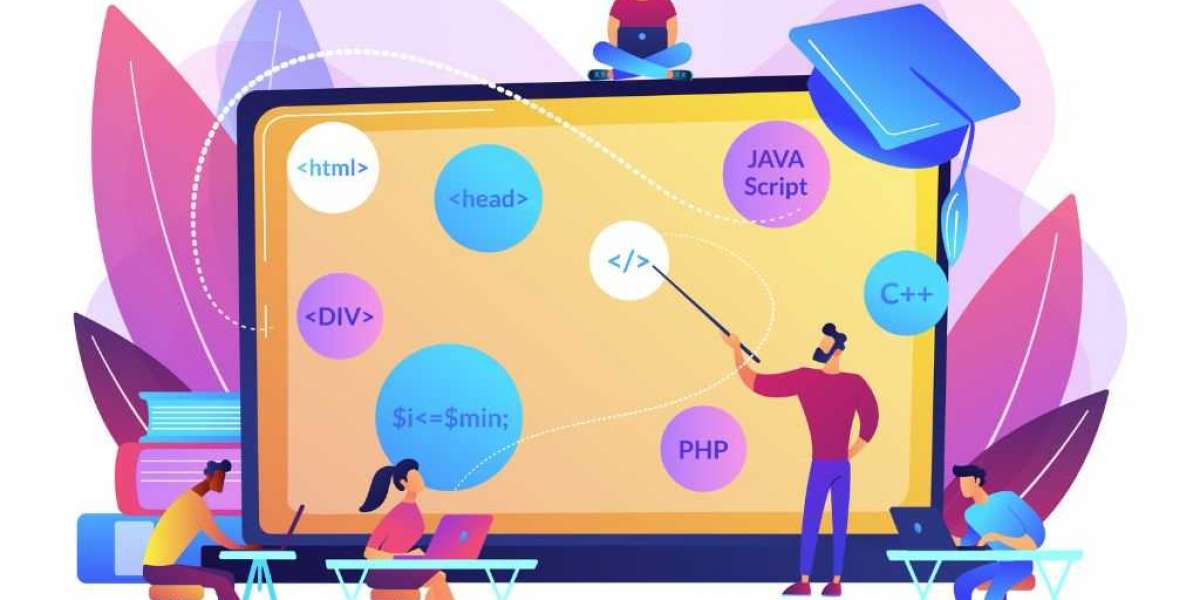Elearning refers to the process of online learning through digital content and tools. It provides learners with flexible ways to gain knowledge and skills remotely through the internet. Mobile apps have become one of the most popular ways to access information on the go in today's world. With so many people glued to their smartphones, a mobile app is an effective way to bring your elearning business online.
This article will outline the major benefits of running your elearning business through a dedicated mobile app. It discusses how apps help improve accessibility, engagement, personalization and other critical aspects. So if you're looking to take your online courses mobile, developing a high-quality app is worth considering.
Reach a Wider Audience
One of the biggest advantages of an elearning mobile app is the ability to reach a much wider audience. According to recent statistics, over 4 billion people own smartphones globally. People are increasingly using their phones for various activities including learning and education on the go.
By developing an app for both Android and iOS platforms, your courses can access this large mobile user base. Learners can discover and sign up for your courses right from their phone's app store. They no longer need to visit your website specifically on a desktop or laptop. This allows you to market to people who may otherwise not consider elearning on traditional platforms.
The mobility an app provides lets your courses reach learners in situations beyond desktop access. People often have short windows of spare time during travel, waiting in lines etc. An app lets them utilize this time productively for learning new skills or advancing their career.
Improved Accessibility
One big challenge with traditional elearning is that learners need dedicated access to a computer with an internet connection to attend courses. This may not always be feasible depending on schedules and locations.
A mobile app solves this issue by offering anytime, anywhere access to your courses. As long as learners have their smartphone and an internet connection, they can login and learn through the app. The portability of mobile devices means students can attend live sessions, watch videos or appear for online tests from practically anywhere - home, office, during commute, while traveling etc.
This high accessibility is a huge advantage for both learners and elearning businesses. It gives maximum flexibility to users in fitting education around their daily lives. Busy professionals appreciate being able to learn even for short periods during gaps in their day.
For elearning platforms, it means a larger pool of potential students who may have otherwise been limited by device or location restrictions. The app ensures learners face minimal hurdles in continuing their education journey. Checkout: https://zipprr.com/udemy-clone/
Engagement and Interactions
Beyond basic access, a well-designed elearning app can also improve student engagement and promote interactions. Various app features come in handy here:
Push Notifications
The app allows sending timely push notifications to learners about upcoming lessons, assignments, quizzes, exams and other important reminders. This keeps them engaged with the course material.
In-app Messaging
Secure in-app messaging lets students interact with instructors, ask doubts and even collaborate with peers on group assignments. It promotes a sense of community.
Rewards and Notifications
Gamification elements like achievements, leaderboards for completing lessons, badges for scoring well can positively impact motivation.
Personalized Dashboard
Learners get quick overview of their progress, goals and pending tasks through a personalized mobile dashboard.
All these interactive features nurture higher learner participation compared to static online classes. Students remain invested in completing courses when the experience feels social and fun using a dedicated mobile app.
Personalized Learning Experience
A distinguishing benefit of mobile apps over websites is their ability to offer personalized experiences. With the wealth of usage data collected, elearning apps can optimize the learning journey for each individual.
Tailored Learning Paths
Based on performance in assessments, time spent on different topics, apps can recommend personalized learning paths. They highlight areas needing more focus for every learner.
Adaptive Content
Presenting content adaptively based on previous responses and pace is highly effective. Videos, texts and practice modules adjust according to learner's grasp of concepts.
In-app Recommendations
The app understands user preferences over time to recommend suitable new courses, study materials or tools to improve. This fosters continuous learning.
Analytics Dashboards
Instructors receive deep insights into how each learner engages with the content through analytics dashboards. They can provide targeted support when needed.
This level of customization simply isn't possible on regular websites. Mobile apps gather richer behavioral patterns to shape an outstanding customized experience for every student.
Gamification of Learning
Mobile apps lend themselves well to gamification techniques that can greatly raise learners' enthusiasm and performance. Some examples are:
Badges and Achievements
Issuing virtual badges and certificates for completing milestones like lessons, quizzes and assessments acts as intrinsic motivation.
Levels and Progression
Displaying clear levels of progress through a course keeps users hooked to reach the next level. It feels like playing an enjoyable game.
Rewards and Unlocks
Small in-app rewards like new themes, avatars for scoring high scores encourages repeat usage. Timely rewards maintain engagement.
Leaderboards and Rankings
Competitive leaderboards based on speed and accuracy of responses triggers healthy competition among peers.
When implemented thoughtfully, gamification uplifts the otherwise dull process of self-learning into an exciting challenge. Students complete courses faster while having interactive fun on their smartphones.
Offline Usage
Connectivity issues can disrupt traditional online learning through websites. But a major advantage of mobile apps is the ability to store course content for offline usage.
The initial course catalog and study materials can be downloaded onto the device. This lets students continue learning even when internet is unavailable through:
- Previously downloaded video lessons
- Text modules, assignments, archived chats
- Saved quizzes, exams for practice offline
Only submitted assessments and fresh resources may require internet. Being able to still progress is a lifesaver especially for those in remote areas withpatchy networks.It maximizes usage of commute/travel time too.
Advanced features like automatic sync on reconnecting ensure learners don't miss out on updates. The offline experience keeps education a top priority regardless of connectivity.
Ease of Payment
Another cumbersome part of online learning is payments - whether one-time fees or recurring subscriptions. Thankfully, mobile apps make the process seamless:
In-app Purchases
Learners can directly purchase individual courses or subscription plans right from the app store using saved payment modes like credits cards, accounts.
Auto-Renewal Subscriptions
Subscriptions auto-renew through app store billing at convenient predetermined intervals with configurable reminders.
Payment Links in App
Option to pay later by linking to payment pages without leaving the immersive app environment.
Most importantly, payment security is assured by hosting transactions within app stores' trusted infrastructure. Few clicks are enough to become a paid member - lowering friction immensely.
This convenience drives higher conversions as users find value faster without unnecessary steps. Elearning platforms gain loyal customers committed for the long term.
Portability
Mobile devices are by nature portable companions allowing learners to "take college in their pocket". The mobility an elearning app provides lets users optimize even small periods of free time for education.
For example, commuters can tune into audio lessons during their daily transit. Office-goers squeeze in a few practice questions over lunch breaks. On vacation, one can casually finish assignments in between sightseeing.
Furthermore, discussions, feedback and collaboration between global peers become truly mobile too. Students benefit from constant access regardless of location variations through personal smartphones.
The portability of learning supercharges productivity like never before. It helps maximize the utilization of every available minute for academic progress.
Consistent Brand Presence
A dedicated mobile app leaves an ever-present impression of your training institution on potential learners' phones. Just like popular consumer apps, it maintains ongoing visibility for the elearning brand.
The app icon sits prominently on home screens, a persistent reminder. Users now have quick access to your programs right from their most used devices. Every notification, in-app message is another brand touchpoint for recall and recall.
Over time, this builds familiarity and recognition, leading more users to consider your offerings. The app taps into the immense time people spend browsing on phones to consistently market courses.
Even simple app listings with course catalog in app stores garner regular discovery. It establishes authority as an innovative educator leveraging latest technologies for learning. A powerful branding tool in today's highly mobile world.
Analytics and Actionable Insights
Detailed analytics possible through mobile apps provides deep appreciation of learner behavior. This forms the basis for continual improvements driving higher engagement and results.
Session-wise Data
Insight into time spent, content accessed, performance in each session enables customizing the next session.
Cohort Analysis
Comparing groups of learners highlight factors behind varying outcomes. Targeted support strategies emerge.
Drop-off Points Identification
Pinpointing where most users halt tracks areas needing simplification or additional resources.
A/B Testing
Testing variations easily through mobile channels helps optimize essential elements like copy, images, interactions.
Retention Metrics
Measures like 7-day, 30-day active user rates indicate user-friendliness and value perception over time.
Continuous Updates and Improvements
Unlike traditional websites that require proper planning and coding for updates, mobile apps allow continuous improvements in real-time. App stores' automatic update feature propagates all enhancements instantly to every device.
This provides an improved user experience that keeps evolving based on latest insights. For instance, apps can quickly:
- Roll out bug fixes whenever detected
- Add new courses or lessons on demand
- Revise content based on fresh instructor feedback
- Augment features based on usage patterns
- Upgrade design, navigation or payment options
Students access the most updated learning experience right away without any manual intervention. It sustains freshness and engagement throughout compared to rigid websites.
From the business side, app analytics can rapidly iterate development. Quick A/B testing turns around learnings to uplift key metrics like retention. The agile, data-driven model propels the elearning platform ahead of static competitors.
Higher Conversions
Finally, the seamless, pleasurable experience of a well-crafted mobile app directly impacts conversions. Research shows apps usually convert higher than equivalent mobile websites.
Some reasons for this include:
- Simpler payment processes result in fewer abandoned carts
- Deeper engagement through notifications, gamification
- Frictionless discoverability, signups and browsing within app ecosystems
- Trust signals like app store reviews and established brand familiarity
- Perceived higher value compared to websites on smaller screens
Simply put, more prospects who visit through mobile devices are inclined to become paying customers after sampling your app. Their joyful interaction and understanding of benefits nudges them to commit quicker.
The streamlined onboarding funnels more users through the sales cycle right up to enrollment. This directly improves your elearning business metrics over alternatives lacking dedicated apps.
Conclusion
In conclusion, developing a high-quality elearning mobile application can significantly boost accessibility, engagement and conversions for any online education business. The productivity and branding benefits of taking courses mobile make app development a highly recommended strategic move.






